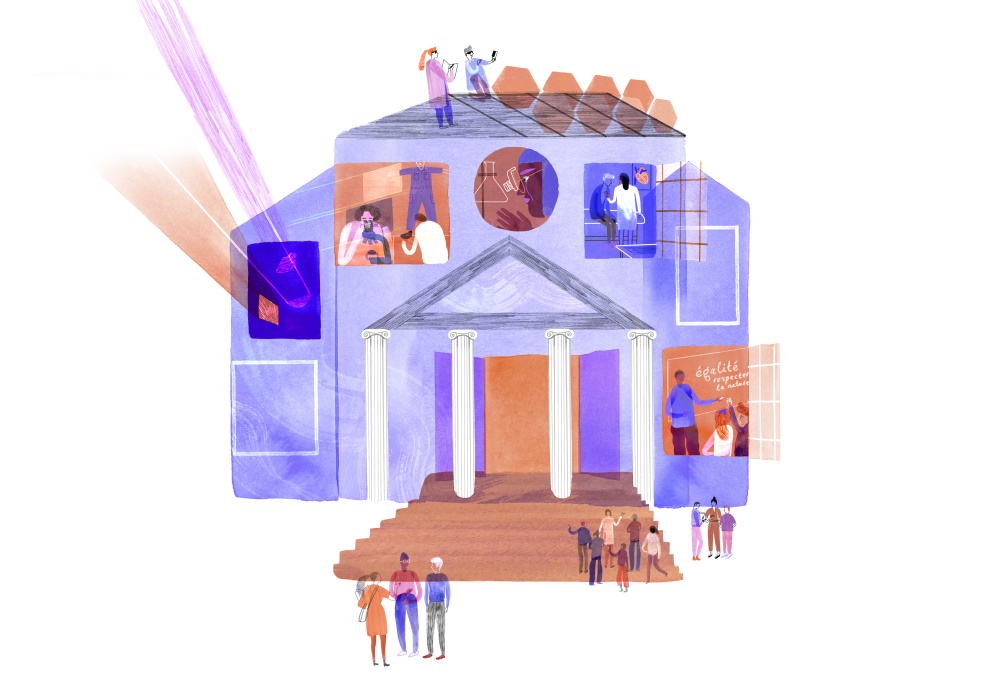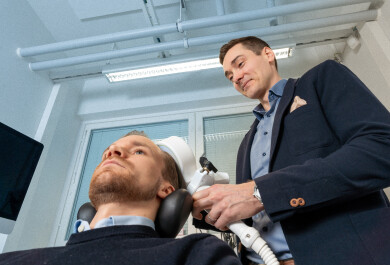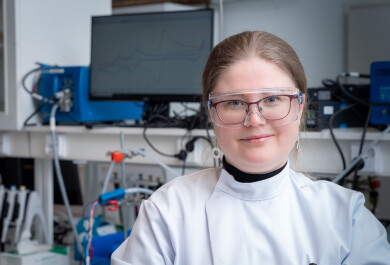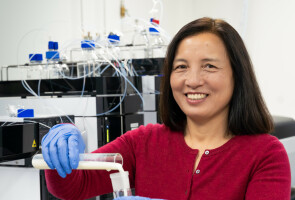Science Shapes Our Everyday Lives
We often overlook the fact that many things that are commonplace for us today are a result of successful research on the subject. A great amount of research that has already affected and will affect the lives of all of us in the future is conducted at the University of Turku. How would hospitals or schools run without universities? Furthermore, how could we ever move towards a more sustainable world without research?
Even very young children observe the world through so-called “math glasses”.
Children learn to recognise quantities, numbers, and shapes in their environment well before school age. The researchers at the Department of Teacher Education were the first in the world to discover that there are differences in the spontaneous observation of mathematical features between young children, and those differences predict the development of children’s mathematical skills over several years. Researchers are developing methods based on play and collaboration that inspire all children to make mathematical observations in day-care centres and schools.
Hackmanite developed by researchers is a miracle substance that glows in the dark.
Chemistry researchers recently created a new X-ray imaging method utilising the colour-changing property of hackmanite. Hackmanite, which emits natural light, could possibly even replace LED bulbs, fluorescents, and energy-saving bulbs. Moreover, a hackmanite sticker attached to the hat of a beach-goer could show when too much UV radiation has been absorbed and that it is time to go into the shade. Next year, hackmanite will be sent into space to test its ability to measure UV radiation.
A future-conscious leader acts responsibly.
Sustainability and responsibility are key in developing the business of the future. Responsible leadership is an important theme in several research projects at Turku School of Economics. The goal of the researchers is to enable a shift towards carbon-neutral, circular economy-based, and nature-friendly business.
Life Cycle Assessment helps to evaluate the risk of illness in individuals and to plan preventive measures.
The Centre for Population Health Research (POP Centre) conducts health research at different stages of a person's life cycle in order to better predict and promote the health of the population. Researchers are currently investigating the causes and consequences of cardiovascular diseases, diabetes, and brain diseases, as well as the biology of ageing, reproductive health determinants, and the health effects of psychosocial stress, among other things.
The Digital Era challenges our privacy.
Everything we do leaves traces of data that is being collected, analysed, and sold. In the multidisciplinary IDA project, researchers are developing democratic ways to manage personal data. For instance, legal researchers analyse wearable technology in terms of protecting privacy in professional life, and the implementation of data protection requirements in health and well-being applications.
The sun generates 10,000 times more energy than the humanity requires.
Solar energy is making a breakthrough at a rapid pace. Materials engineering researchers are figuring out how to produce a new generation of solar cells in a simple and inexpensive manner. Sustainable solar energy requires environmentally friendly production and materials, longevity of all devices, and the recyclability of the solar cells.
Reforming policy practices in order to address the long-term consequences of decisions.
Reflective civil dialogues have previously helped decision-makers in considering the long-term consequences of decisions. Researchers of the PALO project, the aim of which is to strengthen the Finnish democracy, have organised civil dialogues, for instance, to assess the fairness of Finland's climate policies and to provide reliable information to voters in the Mustasaari referendum.
Language acquisition aims at interaction with the world.
The Ethical and Sustainable Language Teaching (EKKO) project explores how language teaching could be even more equal and observant of green values. Researchers want to bring the topics of sustainable development into language studies so that students could see it as an integral part of life. Learning methods for language teaching that promote ethics, sustainable development, and linguistic equality are developed in the project.
Text: Jenni Valta
Illustration: Satu Kettunen
Translation: Jatta Koivumäki




